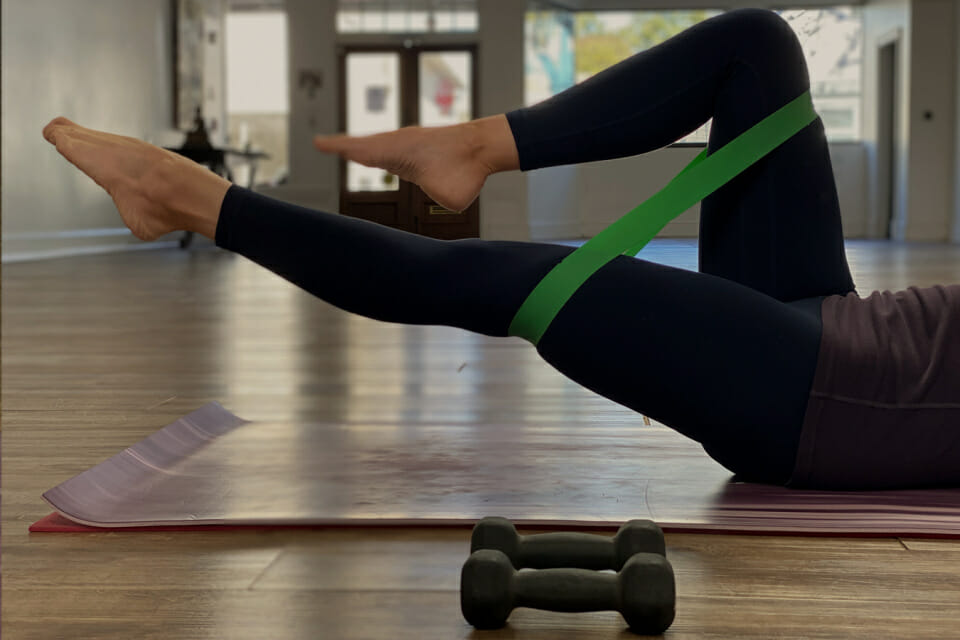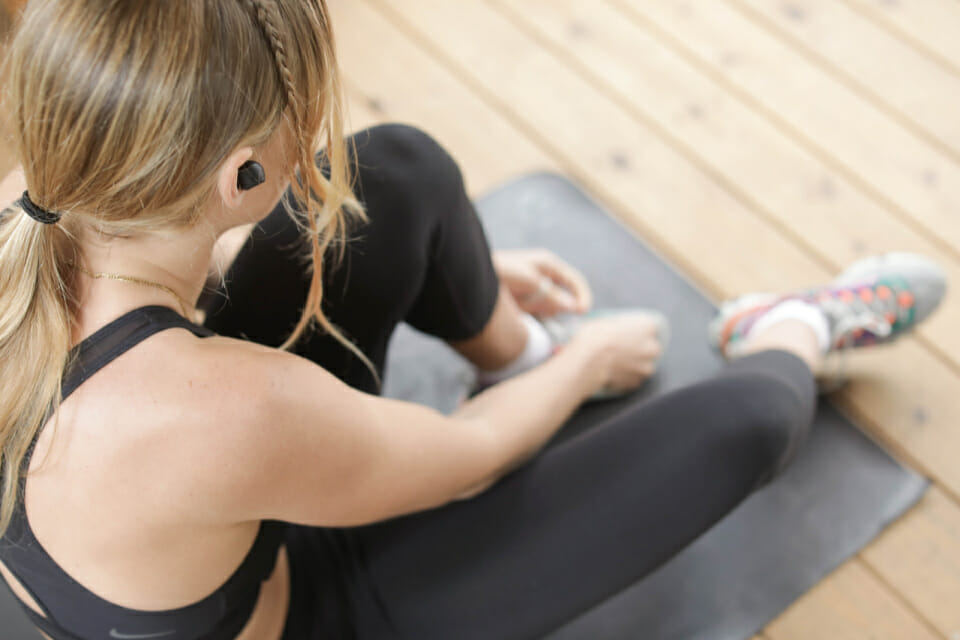![]()
How exercising can help boost your mood – whatever your fitness level

We all know exercising is good for your physical health, but it also has many health implications for your brain.
Not only can physical activity make you happy, but it can also boost your mood regardless of how fit you are.
In fact, one of the effects of exercise is that you can feel instantly happier and this can last for hours.
With continual exercise, your mental health can be improved long-term.

How fit do you need to be to improve your mood with exercise?
You can see large psychological improvements with just low-intensity exercise. You don’t have to work out harder to feel better. It can often be off-putting to get your body moving if you aren’t used to doing it.
Making sure you move your body regularly, as little as 20 minutes three times a week, can offer a range of mental health benefits. Regular physical activity can help boost serotonin which can help improve mood and well-being.
Walking is a great way to start if you aren’t used to exercising and are worried about your fitness levels.
Some research shows that cardio workouts like walking, jogging and swimming are the most effective at reducing anxiety and the symptoms of depression. But having a variety of workout routines is also important.
Even just getting outside with a friend, going for a walk, or pushing the pram around the shops – are all forms of incidental exercise.
What should I do if I am immobile or have a disability?

There is a range of health conditions where a typical exercise routine may not be possible. Whether it’s due to energy levels, physical health or other disability that means you have to adapt your workout routine to suit your physical needs.
If your looking for an alternative aerobic exercise and walking doesn’t work for you, you could try swimming as it’s gentler on your joints.
People with disabilities who are able to walk or move with the use of assistive devices, such as wheelchairs or walkers, should do so. You can often find an exercise program that adapts for your disability aid if you need it.
The aim is to get your heart rate up, strengthen your muscles and energise your body.
If you can’t use your legs, work on your arms and vice versa.
How long will I feel happy after exercise?

Tell yourself it will make you feel better. Try doing something you enjoy, like a dance class, so exercising doesn’t feel like a chore.
Don’t push yourself too hard. If you’re worried, you will lose motivation. You want to be left feeling energised, not exhausted!
Often, if you feel sore and burnt out, you won’t feel like you’ve enjoyed your workout. But if you push yourself without overdoing it, you should feel less stressed and energised for around two hours after your workout.
However, in some cases, these feelings of decreased stress, increased happiness, and relaxation may last for as long as 24 hours.
Managing to do any form of regular physical activity whether it’s a moderate-intensity workout or just a basic aerobic workout or some cardio anything will help.
Over time, your brain will come to associate exercise with that burst of happy chemicals, making it want to keep at it. Plus, the fitter you are, the more you might want to work out, creating a positive effect.
The important thing is consistency and continuation.
Why does exercise help?

Recent research shows that walking fast for 35 minutes a day, five times a week – or walking for 60 minutes a day, three times a week, had a ‘significant influence on mild to moderate depression symptoms’.
There are a couple of theories on why exercise is so helpful when it comes to depression. Of course, there’s the release of endorphins which may help put you in a happier place.
There’s also another theory that being active stimulates the neurotransmitter norepinephrine, which may directly improve mood.
Endorphins are released by your brain when you exercise and are the body’s natural painkillers. They are produced by the hypothalamus and pituitary gland if you are under stress or in pain.
Exercise, having sex, dancing, getting a massage, laughing, meditating and drinking wine can help release these endorphins.
However, drinking too much alcohol or being overweight can cause lower levels of endorphins. A person is more likely to be depressed with low levels of endorphins.
5 reasons why exercise is good for your overall wellbeing

1) Manages stress
There is no doubt that a mum’s life can be stressful. The best thing you can do for yourselves as a mum is some exercise.
When you exercise, endorphins are released in your brain.
These chemicals trigger a positive feeling in your body, making you feel less stressed and boosting your mood.
Exercising also helps to get rid of cortisol and adrenaline, hormones released when you’re tired and stressed.
2) Goodbye emotional eating
No one knows more about emotional eating than a tired and stressed mum. As a mum, you often feel emotional, tired, stressed and overworked.
This is where emotional eating comes into play.
Stress hormones are partly responsible for making you crave high carb, sugary and fatty foods.
When you’re overtired or upset, chances are you may feel a strong desire to reach for junk food.
By forcing yourself to head out for a quick walk, you will be metabolising those stress hormones. This will trick your brain into getting rid of those unhealthy cravings.
3) Exercise makes you happier

One of the effects of exercise that has repeatedly been proven is that it can make you happier in the short and long term. Therefore, as a mum, exercise is essential.
One study found that those who stayed active over the years were happier than those whose activity levels varied.
Being happier and less stressed can help you shrug off and better manage the little things kids may do that can get under your skin.
4) Improves self-esteem

The perception of yourself is crucial in leading healthy lives.
Stress and low self-esteem can create unhealthy behaviours such as emotional eating or binging.
This can be where the mental benefits of exercise can come into play. As your self-esteem improves, you’ll see an improvement in your self-confidence and happiness.
5) Exercise increases willpower

As a mum, we constantly put everyone and everything else before ourselves. Sometimes it’s just too hard to resist those Tim-Tams for that quick sugar rush, especially when you’re tired, stressed and hungry. You can change and improve your self-control through regular exercise, and those Tim-Tams become less of a threat.
Exercise has a massive positive impact on your mental health and wellbeing. The type of exercise you do doesn’t have to be an intense and long session, it could just be a short brisk walk, and you will start to notice the positive outcomes!
The Healthy Mummy Wellness App – Practical Wellbeing For Your Daily Life

The Healthy Mummy Wellness app is built to support mums’ mental, physical and social wellbeing. We have expert advice to help mums makeover their minds, transform their mood, manage their hormones, sleep better and engage with their family.
You can listen to podcasts, read blogs, work out with our trainers and find healthy, family-friendly recipes from the palm of your hand.



